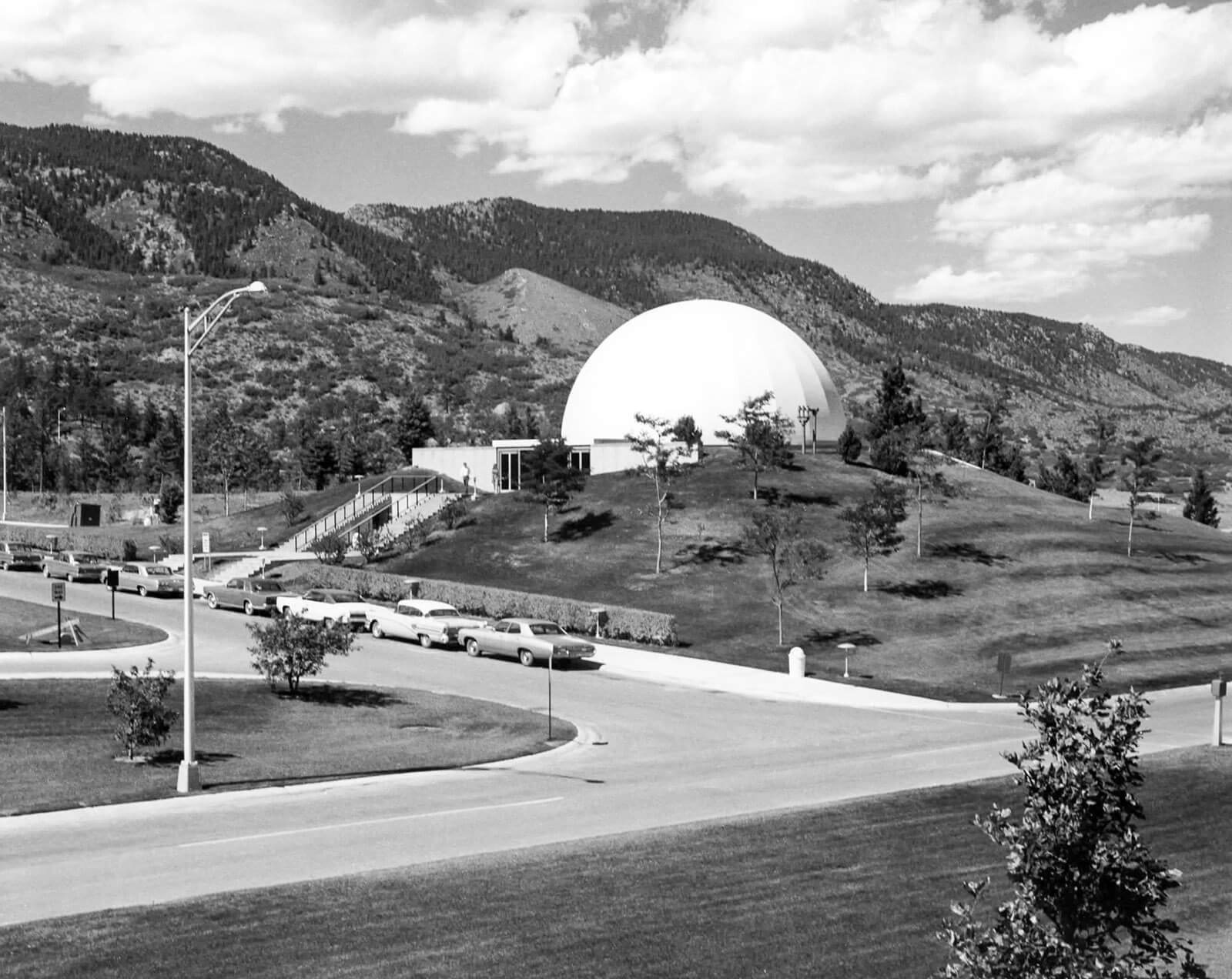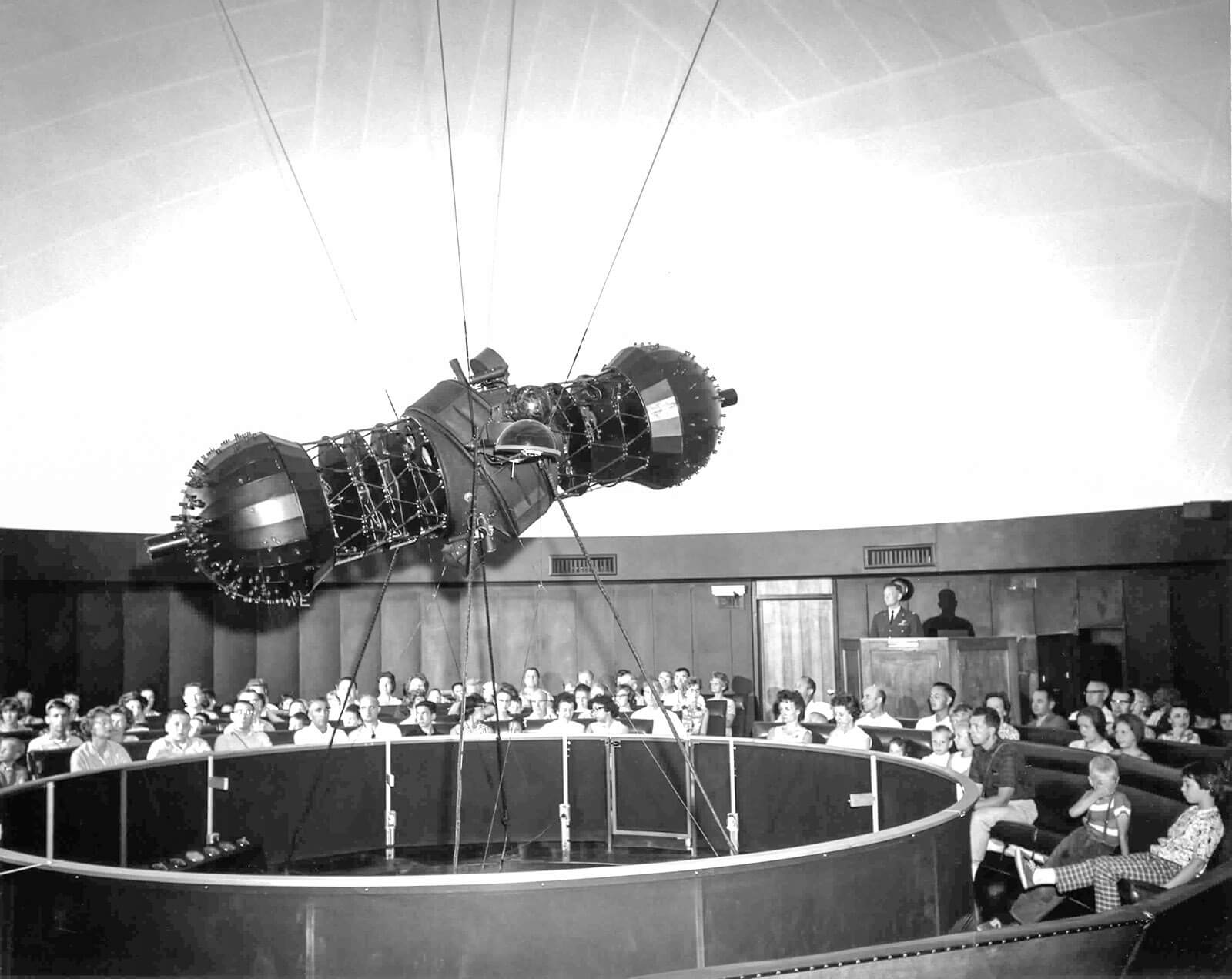Planetarium
Updated Base Access
As of June 25, 2025, the U.S. Air Force Academy directs all visitors to use the South Gate as part of updated security measures and procedures. All Department of Defense ID card holders are encouraged to use the North Gate to enter the Academy installation.
Visitors wanting to see shows at the Planetarium must register for an installation access pass by sending an email to planetarium@afacademy.af.edu with the date you intend to visit the Planetarium. You may email your request for base access starting 10 days prior to your visit. You will receive a reply email with a QR code which you will use to request your installation access pass for that day’s visit.
General visitors must be sponsored by an organization or individual with a DoD ID card. Employees and sponsored visitors should plan for increased security measures and longer wait times at the gates. While on the installation, all personnel are subject to search.
The Santa Fe Trail is closed to all personnel for the portion that crosses the Academy installation. The 10th Medical Group, Exchange and Commissary remain open to all beneficiaries.
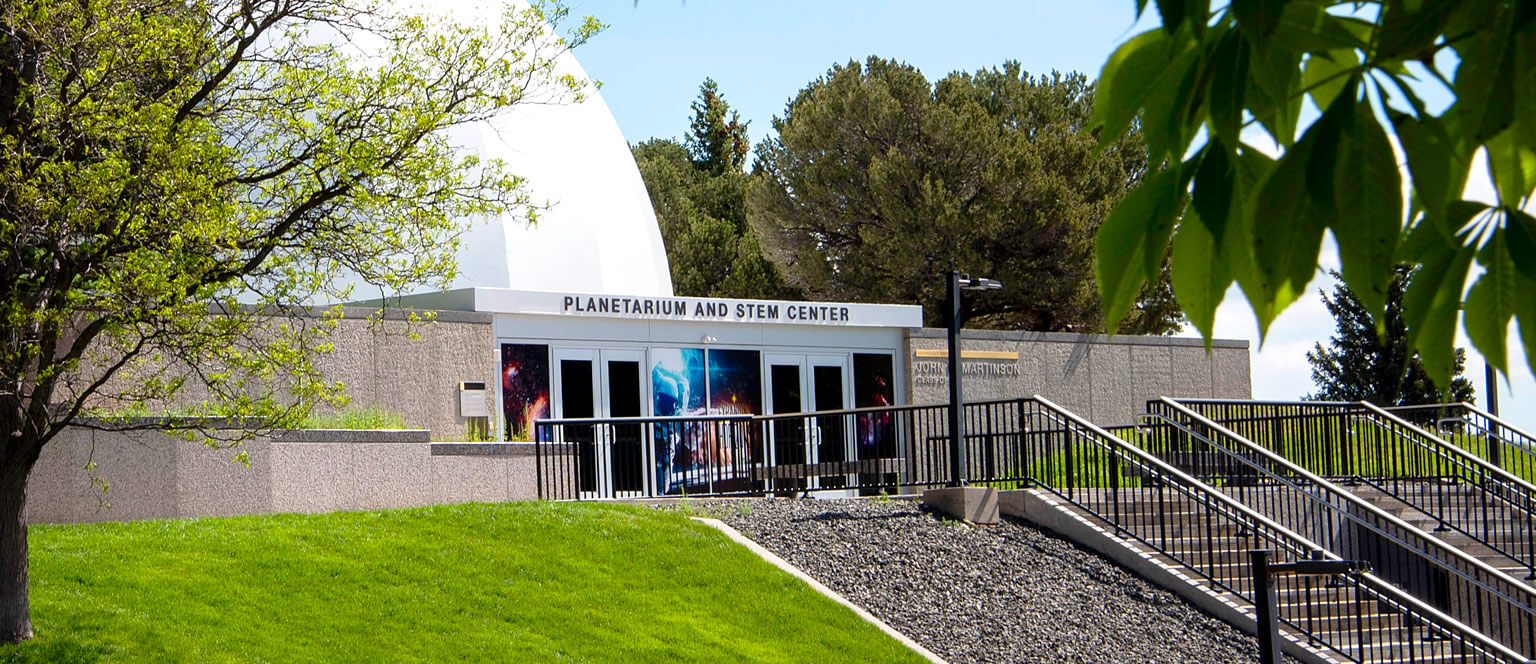
We offer a diverse range of full-dome and IMAX films, live talks and educational events using our state-of-the-art 8K projection technology and immersive surround sound.
The U.S. Air Force Academy’s Planetarium enhances our Science, Technology, Engineering, and Math (STEM) outreach and cadet education mission through public shows, field trips, and cadet classes.
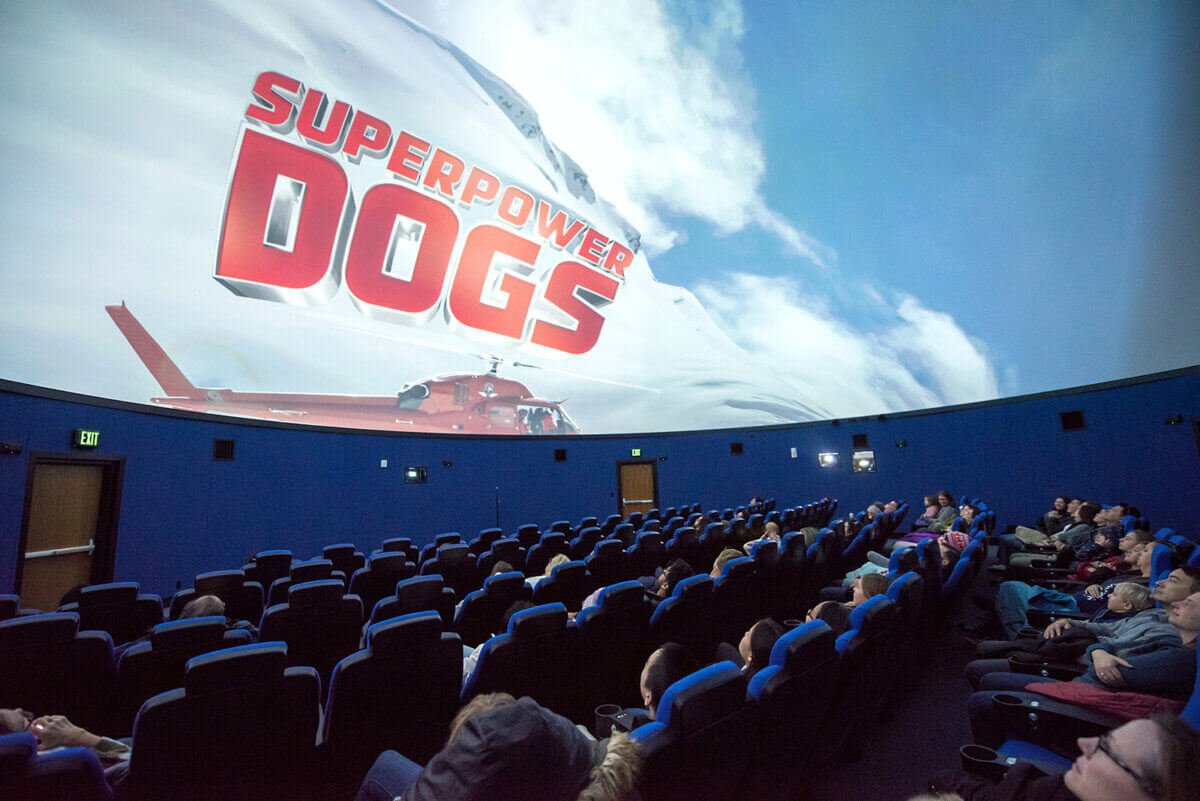
Free Public Shows
All public shows are free and open to the public. Seating for all public shows is on a first come, first serve basis. We do not accept reservations for public shows. We recommend arriving 10 minutes prior to the show time. Parents and chaperones are responsible for children’s behavior.
The Planetarium is closed on Graduation Day and federal holidays.
See below for current public show schedule. See bottom of this page for descriptions/running times of Planetarium shows.
Shows are subject to change or cancellation without notice.
Planetarium Field Trip/Group Visit Requests being taken for 2025-26 School Year: Please complete the Online Request Form.
Schedule
All public shows are free, open to the public, and are first come, first seated. Once the planetarium’s 110 seats are filled, the Planetarium is full and additional guests will be asked to attend the next showing. All guests must exit the Planetarium after each show. Guests are welcome to re-queue for the next show, but only after exiting to allow everyone the opportunity to enjoy the Planetarium.
| Show Schedule | |
|---|---|
| Visitors wanting to see a planetarium show must follow the process of entering the Academy described at the top of this page |
|
| The Planetarium IS open for visitors to see shows. All visitors must come on base in accordance with current base policy as stated above. Thank you for your understanding of our current situation. |
|
| July | |
| Thursday, July 17 | 10:45 a.m. – Humpback Whales Noon – Double Feature: Black Holes & Cosmic Mashups 1:00 p.m. – Live “Are We Alone?” Exoplanets Show 2:00 p.m. – Dream Big |
| Friday, July 18 | 10:45 a.m. – Superpower Dogs Noon – Live Night Sky & Solar System Tour 1:00 p.m. – The Dark Matter Mystery 2:00 p.m. – Great Bear Rainforest |
| Tuesday, July 22 | Celebrating the Apollo Missions 2:00 p.m. – Always Above & Black Holes 3:00 p.m. – Apollo 11: First Steps 4:00 p.m. – Galileo’s Moon: The Apollo 15 Story Evening Shows: 5:00 p.m. – Humpback Whales 6:00 p.m. – Live Night Sky & Universe Tour 7:00 p.m. – Great Bear Rainforest |
| Wednesday, July 23 | Noon – Special Live Show: Exoplanets – Are We Alone? 1:00 p.m. – From Earth to the Universe (limited seating) 2:00 p.m. – Live Night Sky Tour |
| Thursday, July 24 | 9:30 a.m. – Superpower Dogs 10:45 a.m. – D-Day: Normandy 1944 Noon – Humpback Whales 1:00 p.m. – CLOSED to Public for private showing 2:00 p.m. – Special Live Show: Exoplanets – Are We Alone? |
| Monday, July 28 | Noon – Apollo 11: First Steps 1:00 p.m. – Volcanoes 2:00 p.m. – Always Above & Oasis in Space |
| Tuesday, July 29 | Noon – Flight Adventures 12:30 – p.m. – Astronaut 1:00 p.m. – Oasis in Space & Live Night Sky Tour (limited seating) 2:00 p.m. – In Saturn’s Rings 3:00 p.m. – Galileo’s Moon: The Apollo 15 Story 4:00 p.m. – Black Holes & Always Above Evening Show: 5:00 p.m. – Live Night Sky Show & Tour of the Solar System |
| Wednesday, July 30 | 2:30 p.m. – Black Holes 3:00 p.m. – Great Bear Rainforest 4:00 p.m. – Dream Big Evening Show: 5:00 p.m. – Humpback Whales |
| Thursday, July 31 | Double Feature Day Noon – Flight Adventures & Astronaut 1:00 p.m. – Black Holes & Cosmic Mashups 2:00 p.m. – Eclipses & Phases of the Moon and Always Above 3:00 p.m. – Oasis in Space & Forward! To the Moon 4:00 p.m. – Humpback Whales |
| August | |
| Friday, August 1 | Noon – Flight Adventures 12:30 p.m. – Astronaut 1:00 p.m. – Black Holes 1:30 p.m. – Cosmic Mashups 2:00 p.m. – Humpback Whales 3:00 p.m. – Great Bear Rainforest |
| Monday, August 4 | Noon – Oasis in Space & Always Above 1:00 p.m. – Astronaut 2:00 p.m. – Superpower Dogs 3:00 p.m. – Great Bear Rainforest |
| Tuesday, August 5 | 9:30 a.m. – Live Night Sky & Universe Tour 10:30 a.m. – Eclipses & Phases of the Moon 11:00 a.m. – Humpback Whales |
| Wednesday, August 6 | Noon – Always Above & Oasis in Space 1:00 p.m. – Great Bear Rainforest 2:00 p.m. – D-Day: Normandy 1944 |
| Thursday, August 7 | Noon – Dream Big 1:00 p.m. – Apollo 11: First Steps 2:00 p.m. – Superpower Dogs 3:00 p.m. – The Dark Matter Mystery & Always Above 4:00 p.m. – Volcanoes Evening Show: 5:00 p.m. – Fighter Pilot |
| Friday, August 8 | Noon – Live Night Sky & Constellations Show 1:00 p.m. – Superpower Dogs 2:00 p.m. – Black Holes & Always Above 3:00 p.m. – D-Day: Normandy 1944 |
| Monday, August 11 | 11:00 a.m. – Shows TBD Noon – 1:00 p.m. – 2:00 p.m. – |
| Tuesday, August 12 | 11:00 a.m. – Astronaut & Forward! To the Moon Noon – Volcanoes 1:00 p.m. – Live Night Sky & Solar System Tour 2:00 p.m. – Oasis in Space |
| Wednesday, August 13 | Noon – Humpback Whales 1:00 p.m. – Great Bear Rainforest 2:00 p.m. – Dream Big 3:00 p.m. – Galileo’s Moon: The Apollo 15 Story |
| Friday, August 15 | Noon – Live Night Sky Tour 12:30 p.m. – From Earth to the Universe 1:00 p.m. – Experience the Aurora 1:30 p.m. – Two Small Pieces of Glass 2:00 p.m. – Fighter Pilot 3:00 p.m. – Live Tour of the Solar System 4:00 p.m. – Superpower Dogs |
| Saturday, August 16 | SPECIAL MOVIE EVENT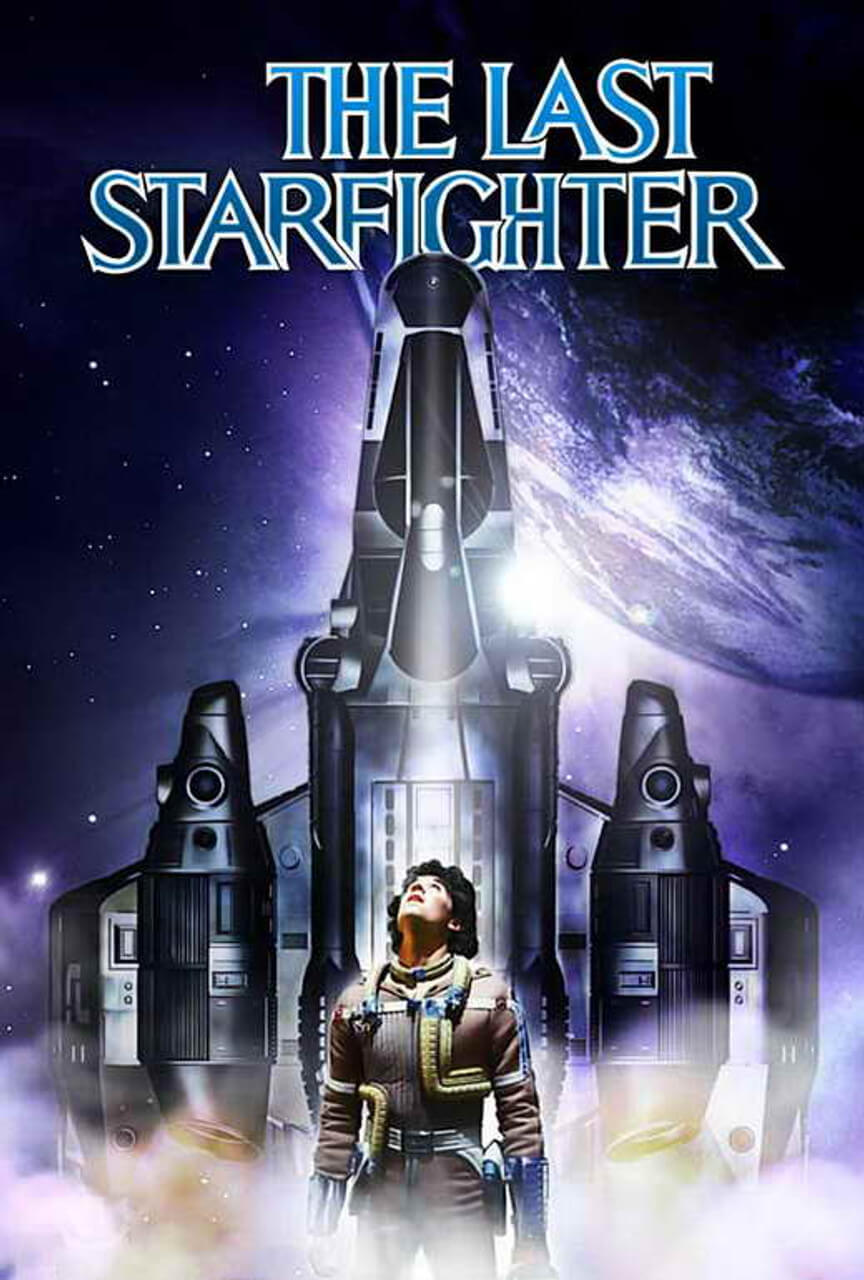 After finally achieving the high score on Starfighter, his favorite arcade game, everyday teenager Alex Rogan (Lance Guest) meets the game’s designer, Centauri (Robert Preston) — who reveals that he created Starfighter as a training ground for developing and recruiting actual pilots to help fight a war in space. Whisked away from the banality of his trailer park life to a distant alien planet, Alex struggles to use his video game-playing skills to pilot a real ship, with real lives at stake. Times TBD TBD – The Last Starfighter TBD – The Last Starfighter All attendees must RSVP online here to reserve your free seats (link will be added soon) |
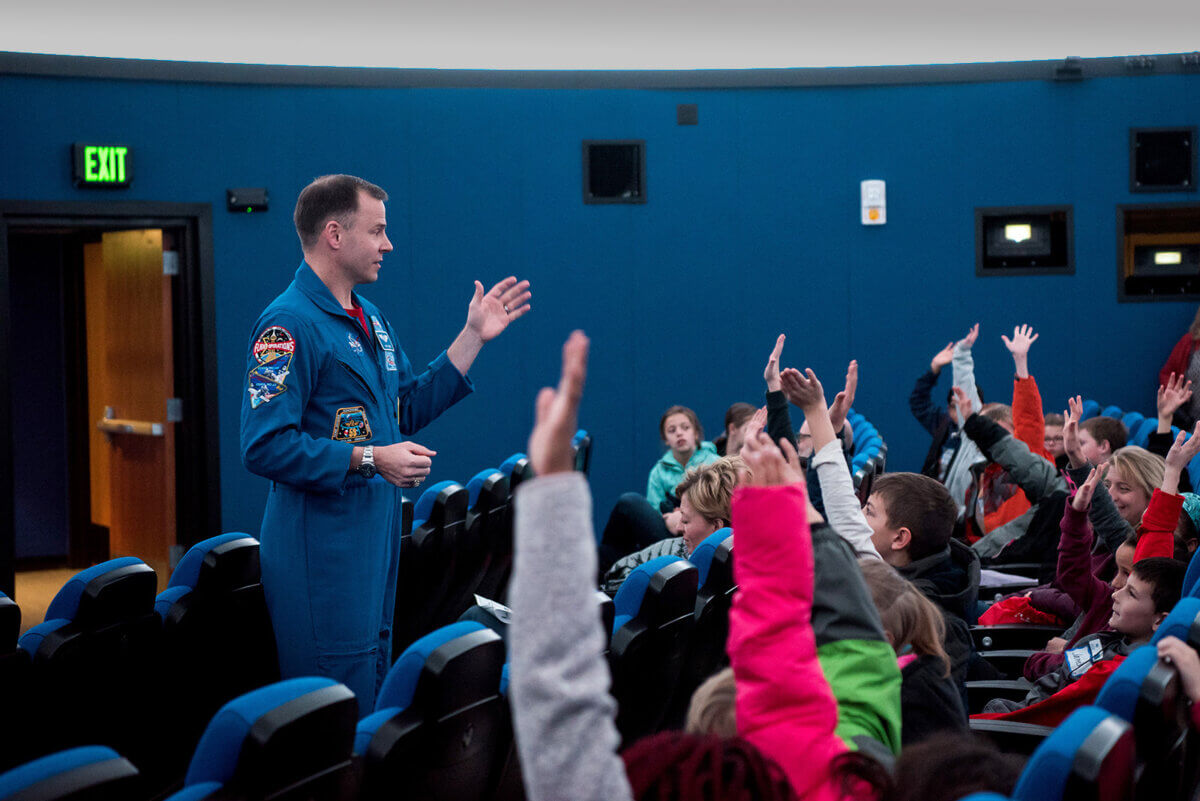
School Field Trips and Group Shows
Elementary, Middle, and High Schools may reserve planetarium field trips at no cost. When requesting a school visit, teachers may select from the list of programs found just below our schedule. We also offer live, interactive astronomy shows tailored to your grade’s science standards.
Homeschool groups and classes with fewer than 20 students can join one of our Homeschool Open House Days, listed in our Public Show Schedule. To reserve seats at our Homeschool Open House, register using the link provided next to the show date and time. If your plans change and you cannot attend, please email planetarium@afacademy.af.edu in order for your seats to be opened for other guests.
Educators interested in additional STEM resources and opportunities can find STEM Outreach information here.
Planetarium Field Trip/Group Visit Request
If you would like to schedule a school field trip or a group showing in the planetarium, please click the button below and complete the online request form.
Field Trips or Groups requesting a private show need to be a minimum of 20 people. If you have a special request for less than 20 people, please send a direct email to planetarium@afacademy.af.edu for consideration.
STEM Activity add-on is NOT yet available for 2024-25 school year.
We are currently NOT BOOKING STEM Activity add-ons, only field trips to the Planetarium.
Our Planetarium school field trips and group showings are free of charge as a service to the community provided by the U.S. Air Force Academy.
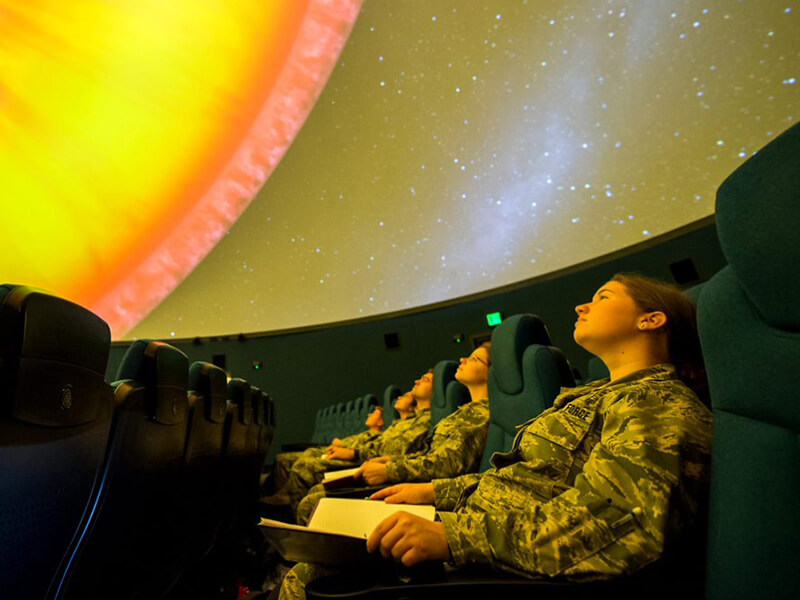
Cadet Shows
The Planetarium creates an immersive learning environment for cadets that can’t be replicated in a traditional classroom or online environment, leading to greater comprehension of complex topics. Although its primarily used as a source of astronomy and astrophysics education, the capabilities and content have expanded to encompass a variety of disciplines such as biology, chemistry, geology, engineering and history. To discuss how we can support curriculum or schedule a visit Monday through Friday, faculty and staff should email planetarium@afacademy.af.edu.
Available Shows
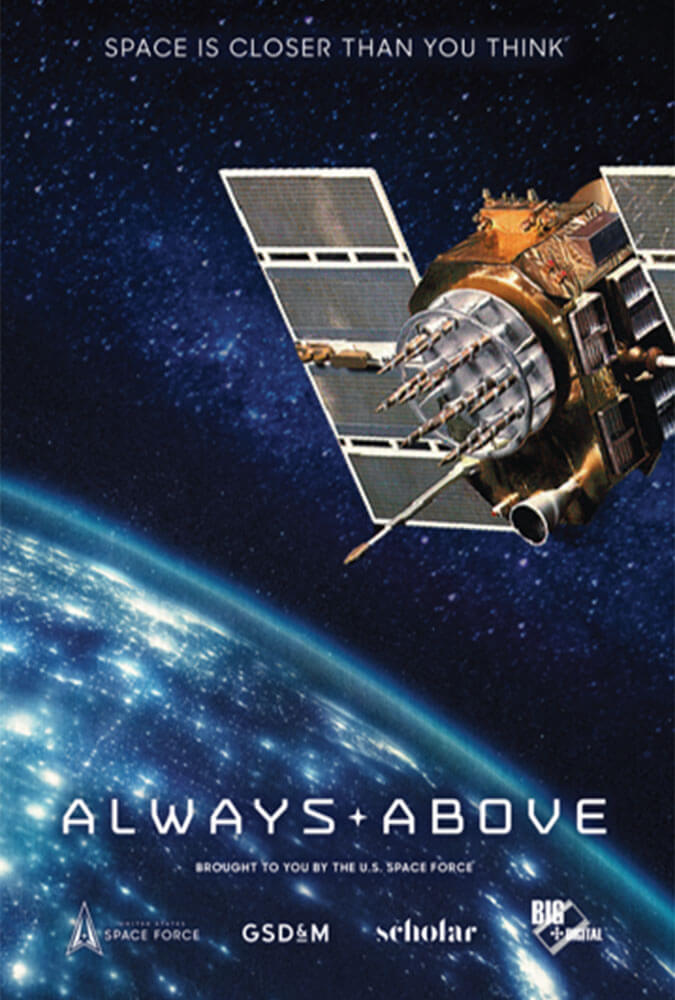
Since the beginning of time, people have gazed upward at the night sky in fascination. But most people don’t realize what is up there or how much our modern way of life depends on the thousands of satellites that fly around our planet. Orbiting the Earth are satellites that allow us to communicate with each other, monitor the weather, help us get to where we’re going and keep our country safe.
Always Above explores how close space is to our daily lives and the role that the U.S. Space Force plays in launching, operating and defending these assets.
This 12-minute, visually stunning journey will take audiences from the depths of the ocean to thousands of miles into space. Always Above is an inspiring, educational experience for people of all ages who have ever looked to the skies and asked, “What’s up there?”
Run time: 12 minutes
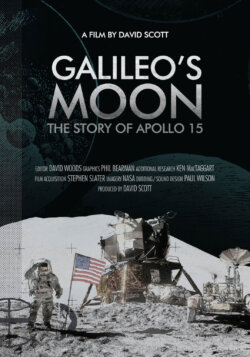
This Apollo 15 50th Anniversary film, Galileo’s Moon, was produced by the Apollo 15 crew and associates to record some historical highlights of the mission as well as to share their personal experiences during the exploration of the Hadley Apennine site on the Moon during 1971. The film was produced privately from archival material retrieved from the period of the Apollo program.
The stunning visuals of the surface of the Moon taken during the Apollo 15 mission make you feel like you are one of the crew.
Run time: 55 minutes

June 6, 1944: The largest Allied operation of World War II began in Normandy, France. Yet, few know in detail exactly why and how, from the end of 1943 through August 1944, this region became the most important location in the world.
Blending multiple cinematographic techniques, including animation, CGI and stunning live-action images, “D-Day: Normandy 1944” brings this monumental event to the world’s largest screens for the first time ever. Audiences of all ages, including new generations, will discover from a new perspective how this landing changed the world. Exploring history, military strategy, science, technology and human values, the film will educate and appeal to all.
Narrated by Tom Brokaw, “D-Day: Normandy 1944” pays tribute to those who gave their lives for our freedom… A duty of memory, a duty of gratitude.
Run time: 45 minutes
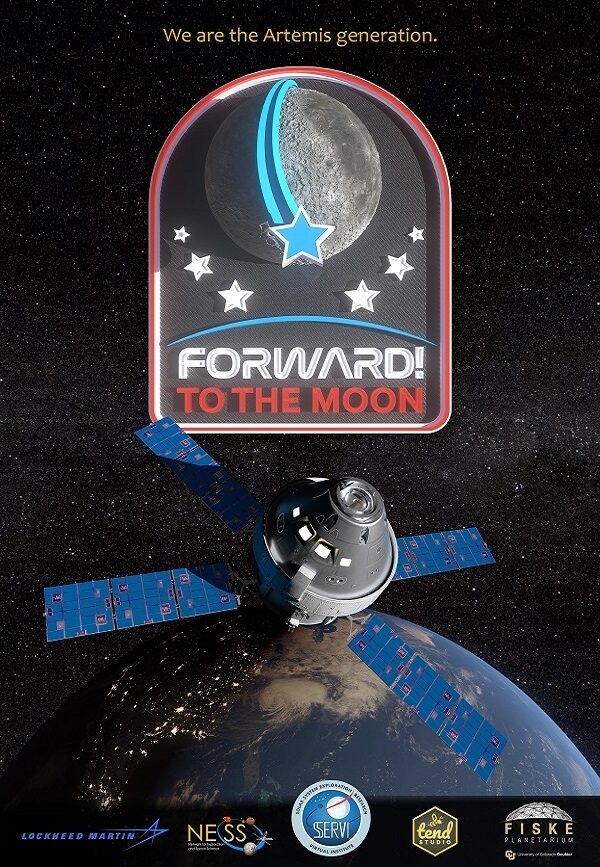
Kari Byron from Crash Test World and MythBusters launches us on a journey beyond the Earth towards a sustainable future in space.
NASA’s 21st century Artemis program, named after the Greek moon Goddess and twin of Apollo, is the next step in our mission to explore the universe and land the first woman and person of color on the surface of the Moon. Produced by Fiske Planetarium in collaboration with TEND Studio.
Subtitles available by request.
Run time: 27 minutes
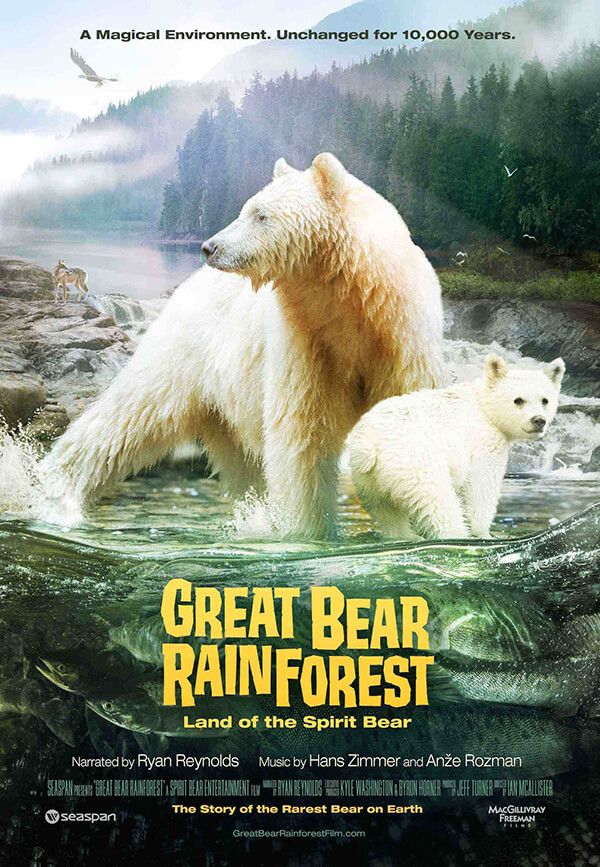
Journey to a land of grizzlies, coastal wolves, sea otters and the all-white spirit bear — the rarest bear on earth — in the film Great Bear Rainforest. Hidden from the outside world, the Great Bear Rainforest is one of the wildest places left on earth. Found on Canada's remote Pacific coast, it is the last intact temperate rainforest in the world—a place protected by the region's indigenous people for millennia. Now, for the first time ever, experience this magical world in IMAX and giant screen theatres, and discover the land of the spirit bear.
Narrated by Ryan Reynolds
Run Time: 43 minutes
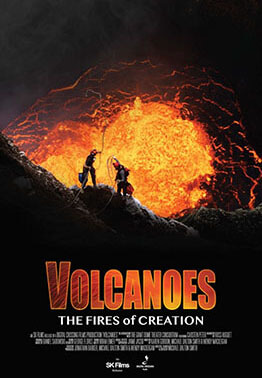
Discover molten worlds and exploding craters! For billions of years, volcanoes have helped forge the world we know. Continents, the air we breathe and even life itself, have been shaped by volcanic energy. Volcanic processes have created extraordinary ecosystems and wildlife habitats. With over 500 active volcanoes, the Earth is bursting at the seams with these forces of mass construction.
Audiences will dodge boulders at the edge of an active volcano in Indonesia, descend to a lava lake in Vanuatu and visit incredible acid ponds, geysers and mineral deposit fields in Ethiopia. Travel across the globe to see the archeological ghost town of Pompeii, hydrothermal vents at the bottom of the ocean and witness the devastating effects of the 2018 Kilauea eruption in Hawaii.
Run Time: 42 minutes
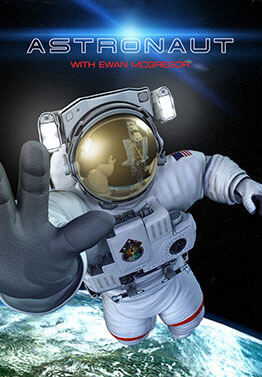
ASTRONAUT takes you from Earth into space... and beyond. Experience a rocket launch from inside the body of an astronaut. Explore the amazing worlds of inner and outer space, from floating around the International Space Station to maneuvering through microscopic regions of the human body. Discover the perils that lurk in space as we subject 'Chad,' our test astronaut, to everything that space has to throw at him. ASTRONAUT is an experience like nothing on Earth.
Run Time: 24 minutes
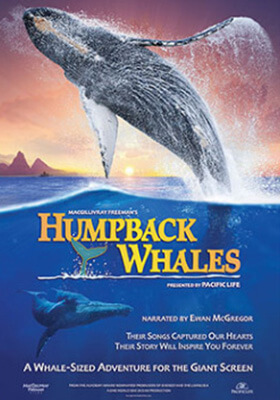
Humpback Whales is an extraordinary journey into the mysterious world of one of nature's most awe-inspiring marine mammals. Set in the waters of Alaska, Hawaii and the remote islands of Tonga, this ocean adventure offers audiences an up-close look at how these whales communicate, sing, feed, play and take care of their young. Found in every ocean on earth, humpbacks were nearly driven to extinction 50 years ago, but today are making a slow but remarkable recovery. Join a team of researchers as they find out why humpbacks are the most acrobatic of all whales, why they sing their haunting songs, and why these intelligent, 55-foot, 50-ton animals migrate up to 10,000 miles round-trip every year.
Run Time: 40 minutes
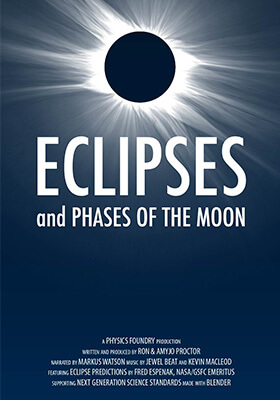
This is more than an eclipse show—it supports NGSS (Next Generation Science Standards) curriculum, including:
- Phases of the Moon
- Solar and Lunar Eclipses
- Moon Lit by Reflected Sunlight
- Moon's Rotational Period and Orbit
- Scale/Orientation of Earth-Moon System
- Composition of the Lunar Surface
- Shape of the Solar System
Target Audience: Students age 8+ and general audience
Run Time: 20 minutes
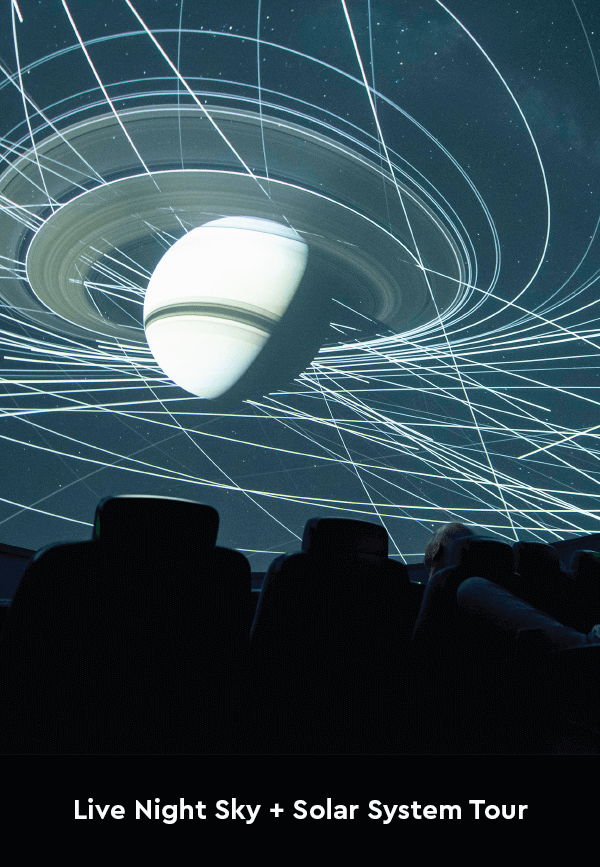
We start our live show by examining the night sky. Free of light pollution, our immersive dome ceiling lets us clearly see the stars, planets and constellations in our area.
Hop aboard an expedition into the solar system with our astronomer! From visiting the sun and our neighboring planets to the seeing where Earth is located within the Milky Way, this journey through the solar system is sure to engage space enthusiasts of all ages.
Watch a sneak peek!
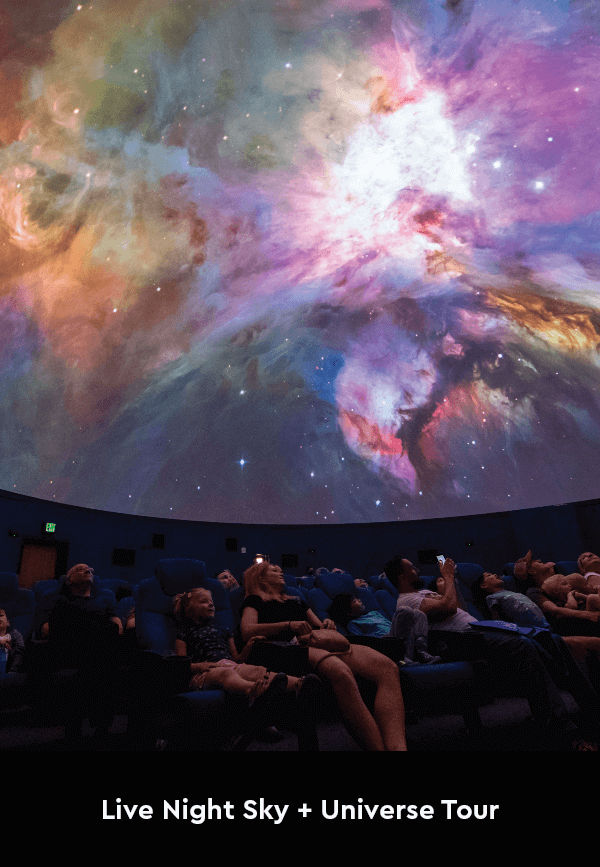
After observing the beauty and wonders of the ever-changing night sky, our astronomer will guide us beyond the reaches of our solar system on a grand tour of the universe. Along the way, we’ll explore the wonders of space as we head to the edge of the observable Universe. Be ready to visit planets, stars, asteroids, black holes, and more.
Watch a sneak peek!
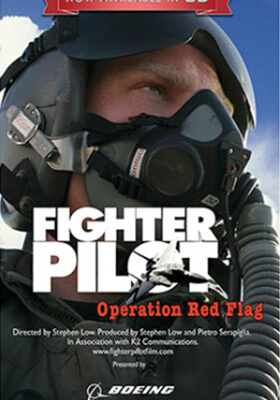
John (“Otter”) Stratton is a young American fighter pilot who flies the F-15 Eagle, arguably the most potent and successful fighter plane ever built. His grandfather was a decorated World War II flying ace, and he intended to follow in his footsteps. At Red Flag, the international training exercise for air forces of allied countries, many of the world’s best pilots meet for the most challenging flying of their careers. Red Flag is the final training for pilots and their aircrews before being sent into actual combat. We follow our young pilot as he makes his way through this extraordinary event held in the desert of Nevada.
Run Time: 49 minutes
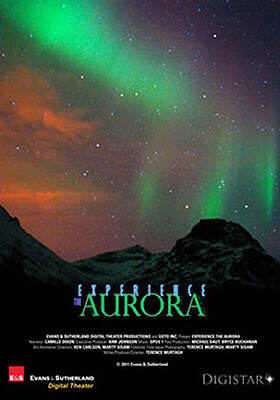
Over seven months in the Arctic Circle, our crews captured timelapse images of the Aurora Borealis with high resolution digital SLR cameras outfitted with fisheye lenses. The results are spectacular. For the first time, the aurora has been captured as it was meant to be experienced, as a display that covers the entire sky. This immersive show shares the science behind the aurora and tells the story of the quest to find and photograph the aurora to show in planetariums. Winner of 2 Telly Awards.
Run Time: 27 minutes
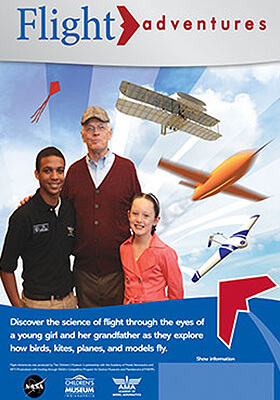
Dreams of flying, model aircraft and a young girl and her grandfather come together in this multi-media planetarium show about the science of aeronautics. Learn about famous inventors and aviators of the past and the pioneers who first revealed the four forces of flight. See images of aircraft past, present and future and imagine where flight might take us.
Run Time: 20 minutes
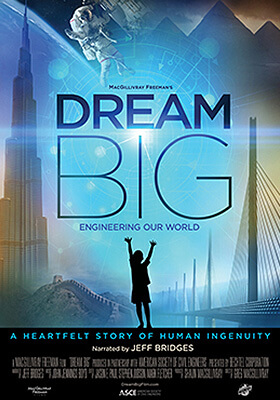
Narrated by Academy Award® winner Jeff Bridges, Dream Big: Engineering Our world is a first of its kind film that will transform how we think about engineering. From the Great Wall of China and the world’s tallest building, to underwater robots, solar cars and smart, sustainable cities, Dream Big celebrates the human ingenuity behind engineering marvels big and small, and reveals the heart that drives engineers to create better lives for people around the world.
Run Time: 42 minutes
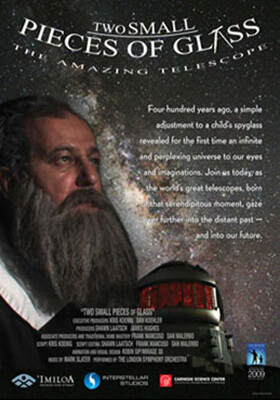
Galileo’s telescopic observations began a revolution, transforming our views of the cosmos and our place within it. It’s a revolution which, four hundred years later, continues. Today you can attend star parties where amateur astronomers set up their telescopes for public viewing. Views through such telescopes would have amazed Galileo. Two Small Pieces of Glass puts you in the middle of a modern star party. Discover the wonders that even a small amateur telescope can reveal and learn about the scientists that made such views possible.
Subtitles available by request.
Run Time: 23 minutes
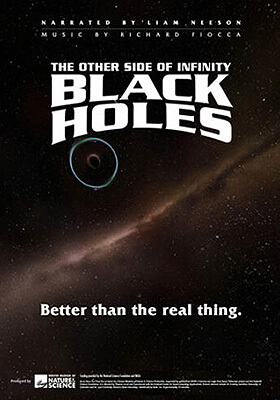
Seen by millions worldwide, Black Holes: The Other Side of Infinity is one of the most successful planetarium shows ever produced. This cutting-edge production features high-resolution visualizations of cosmic phenomena, working with data generated by computer simulations to bring the current science of black holes to the dome screen. Audiences will be dazzled with striking, immersive animations of the formation of the early universe, star birth and death, the collision of giant galaxies, and a simulated flight to a super-massive black hole luring at the center of our Milky Way galaxy. Narrated by Liam Neeson.
Subtitles available by request.
Run Time: 24 minutes
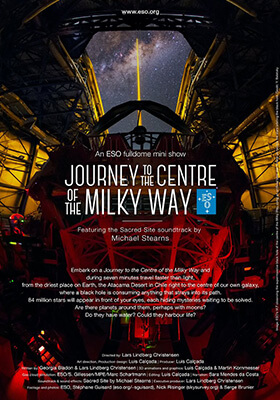
What lies at the heart of our galaxy? For twenty years, ESO’s Very Large Telescope and the Keck telescopes have observed the center of the galaxy, looking at the motion of more than a hundred stars and identifying the position of the supermassive black hole at the center of our galaxy. Embark on a Journey to the Centre of the Milky Way and travel faster than light from the driest place on Earth, the Atacama Desert in Chile, right to the center of our own galaxy, where a black hole is consuming anything that strays into its path. 84 million stars will appear in front of your eyes, each hiding mysteries waiting to be solved. Are there planets around them, perhaps with moons? Do they have water? Could they harbor life?
Run Time: 7 minutes
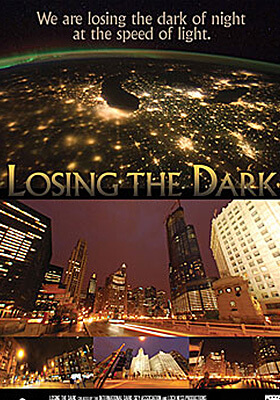
A “public service announcement” planetarium show introduces and illustrates some of the issues regarding light pollution, and suggests three simple actions people can take to help mitigate it. The show educates the public about the problems of light pollution and the responsible use of lighting.
Run Time: 7 minutes
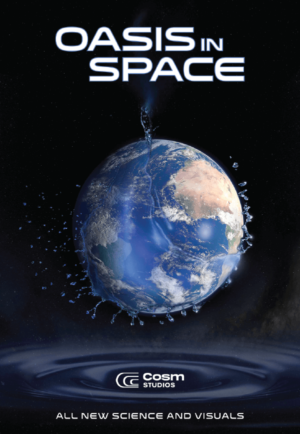
Oasis in Space will transport you on a startling and beautiful voyage through our universe, galaxy and solar system in search of liquid water, a key ingredient for life on Earth. We begin our journey by exploring Earth, with its vast oceans and plentiful water that makes life possible. One by one, we fly to the other planets and moons, discovering their characteristics, such as atmosphere, temperature and composition.
Download the educator's guide.
Run Time: 24 minutes
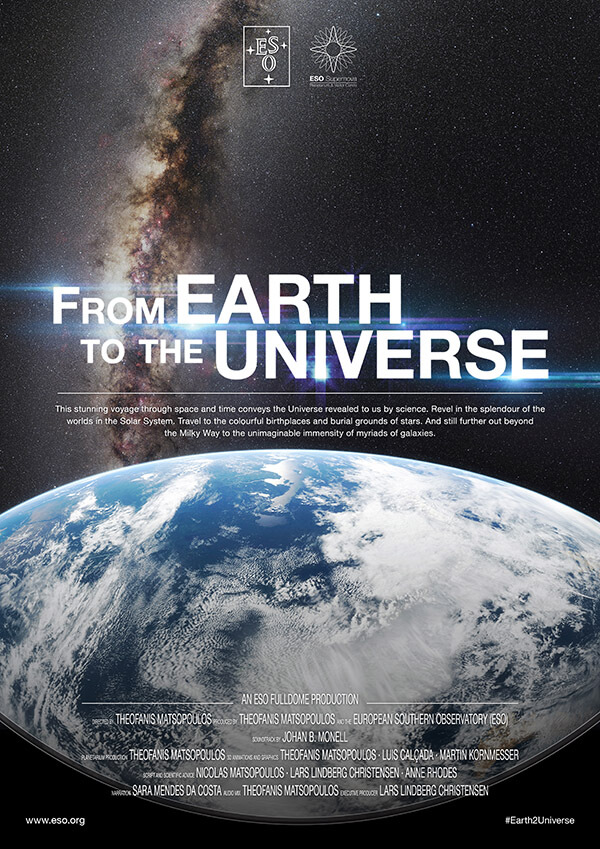
In a stunning voyage through space and time, From Earth to the Universe shares the wonders of the Universe as revealed to us by science. From early astronomers like Copernicus and Galileo, humans have been grasping to understand the universe in which we live. This story takes us on a journey from those early times to modern astronomy and the newest explanations of the wonders of the cosmos which capture our imaginations.
Run Time: 32 minutes
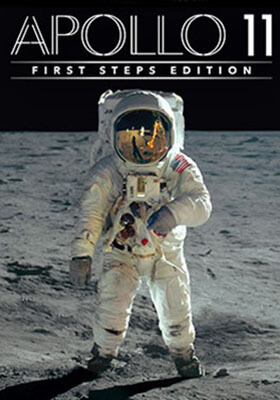
Astronauts Neil Armstrong, Edwin “Buzz” Aldrin and Michael Collins blasted away from Earth on a Saturn V rocket on July 16, 1969. On July 20, Armstrong and Aldrin set foot on the moon, the first humans to do so. The three returned to Earth on July 24.
The filmmakers reconstruct the exhilarating final moments of preparation, liftoff, landing and return of this historic mission—one of humanity’s greatest achievements and the first to put men on the moon. With a newly-discovered trove of never-before-seen footage and audio recordings, Apollo 11: First Steps Edition joins Neil Armstrong, Buzz Aldrin and Michael Collins, the Mission Control team and millions of spectators around the world, during those momentous days and hours in 1969 when humankind took a giant leap into the future.
Run Time: 48 minutes
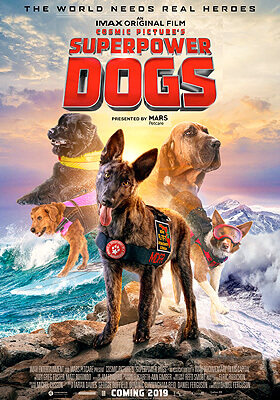
Join an immersive adventure to experience the life-saving superpowers and extraordinary bravery of some of the world’s most amazing dogs. In this inspiring true story narrated by Chris Evans, our best friends are also real-life superheroes. Journey around the globe to meet remarkable dogs who save lives and discover the powerful bond they share with their human partners. Follow ‘Halo’, a rookie puppy training to join one of the most elite disaster response teams in America. Meet ‘Henry’, an avalanche rescue expert in the mountains of British Columbia, ‘Reef’, a Newfoundland lifeguard with the Italian coastguard, ‘Ricochet’, a Californian surf legend helping people with special needs, and the Bloodhound brothers, ‘Tipper and Tony’, who are leading the fight to save endangered species in Africa. As we discover the incredible abilities of dogs and the astonishing science behind their superpowers, we’ll never look at our best friends the same way again!
Run Time: 47 minutes
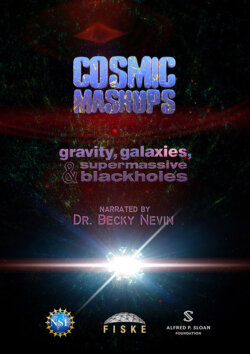
Black Holes have become a major topic of interest in the past half decade. With the ever-increasing power and sensitivity of ground-based telescopes and space observatories, we know more about galaxies and black holes than ever before.
Supermassive black holes are found in most galaxies and we're beginning to uncover how the merging of galaxies activate galactic centers.
This engaging full-dome film was produced by Fiske Planetarium in collaboration with APS Professor, Dr. Julie Comerford and former graduate student Dr. Becky Nevin through support from an NSF award.
Running time: 22 minutes
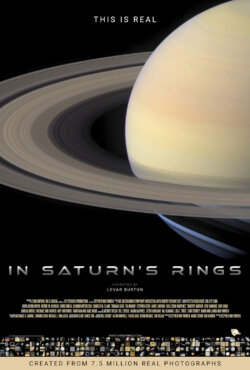
In Saturn’s Rings is a groundbreaking giant-screen adventure that takes audiences on a journey of the mind, heart and spirit, from the Big Bang to the awe-inspiring rings of Saturn.
Over 7.5 million mostly unseen real images from the Cassini-Huygens Mission to Saturn, Sloan Digital Sky Survey, Hubble Telescope Milky Way time lapses, and more are brilliantly brought to life in this ground-breaking epic immersive journey across space and time.
From the earliest images after the Big Bang, to the final photographs Cassini took before plunging to its end in Saturn’s clouds, In Saturn’s Rings, like space exploration itself, is a journey of the heart, mind and spirit that moves audiences with some of the most amazing space images ever seen.
Running time: 45 minutes
Contact Us
Email is the best way to communicate with the Planetarium: planetarium@afacademy.af.edu
While there is a phone number, the phone does not ring in the Planetarium and is best for inquiring if something was left in our lost and found.
Directions
Directions to the Planetarium, use the North Gate, exit 156 off Interstate 25 to enter the U.S. Air Force Academy. All visitors currently need either an active DoD ID card or a base pass and all adult visitors are subject to request to see your driver’s license and proof of vehicle insurance to enter the base. Please be prepared for potential security measures such as vehicle inspections.
Foreign national visitors with a passport will need to go to the Pass & Registration Center, just outside the South Gate at exit 150, to obtain a pass.
Learn more about base access and check out the campus map. Please do not follow GPS directions to the Planetarium as those will take you to an incorrect location.
Once on base, drive straight on North Gate Blvd as it continues straight and turns into Academy Drive for 4 miles and then turn left to park in the visitor lot for Arnold Hall. There are large blue and white signs with direction arrows to follow to the Planetarium as well.
To the north of the visitor parking, there is a building with a white dome – that’s the Planetarium! Please follow the steps to the front door or use the winding path to the left of the steps for ramp access.
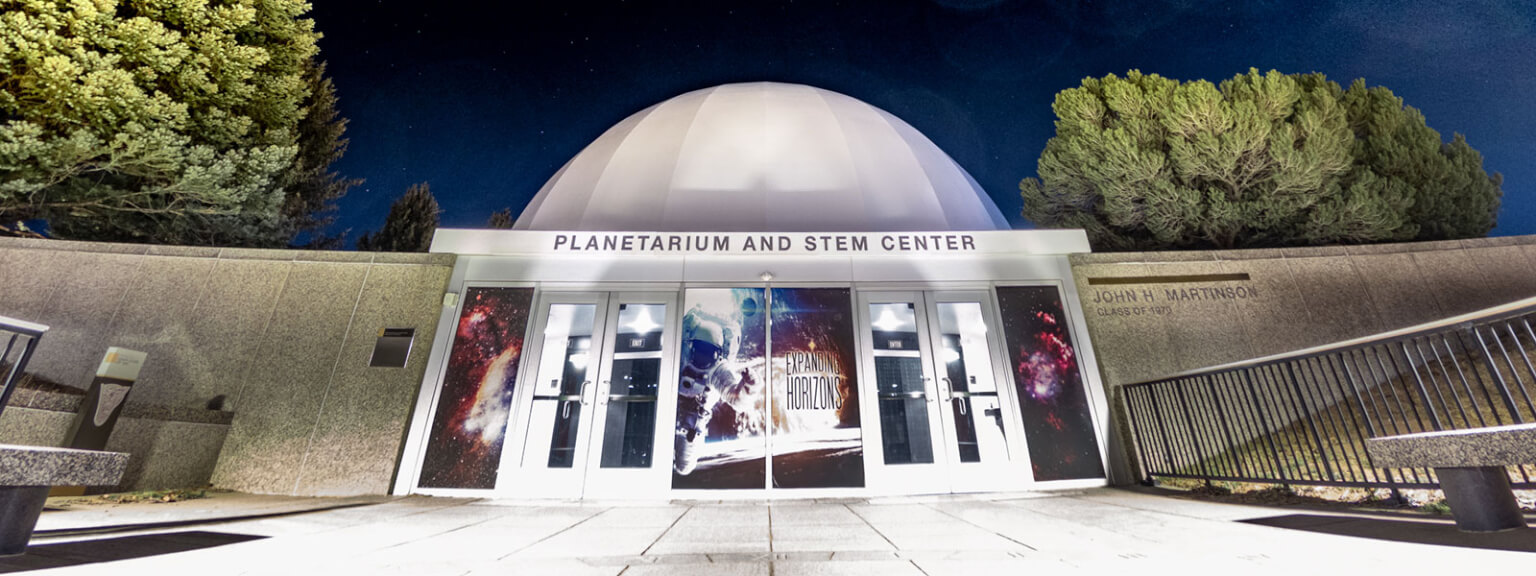
History
The Planetarium was originally built in 1959 and is one of the oldest structures at the U.S. Air Force Academy. With seats surrounding the perimeter and a large projector in the center, the Planetarium was initially used to teach celestial navigation classes to cadets. Due to rapidly advancing computing technology, cadets no longer had a need to navigate by the stars and this resulted in its closure in 2004.
After 15 years of sitting vacant, a passionate group of Academy leaders with the support of private donors spearheaded an effort to not only refurbish the structure, but advance the technology and capabilities inside to serve a new generation of cadets leading the way in space. Although the exterior remains virtually identical to its previous incarnation due to its historical status, the interior now features reclining theater seats and a series of 8K projectors built into the walls that offer a 360-degree near-hemispheric screen to deliver a visually immersive field-of-view to audiences.
On March 4, 2019, the Planetarium officially reopened to the public, welcoming over 45,000 visitors in its first year of operation, including 4,000 K-12 students. With a new mission to enhance STEM outreach to the local community, it quickly became a top-rated attraction and tourist destination in Colorado Springs.
